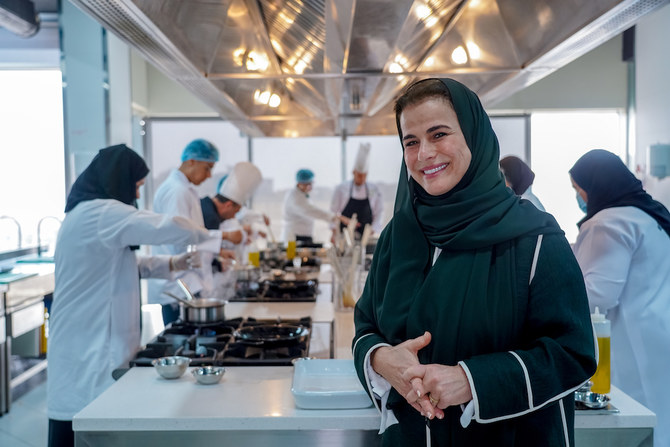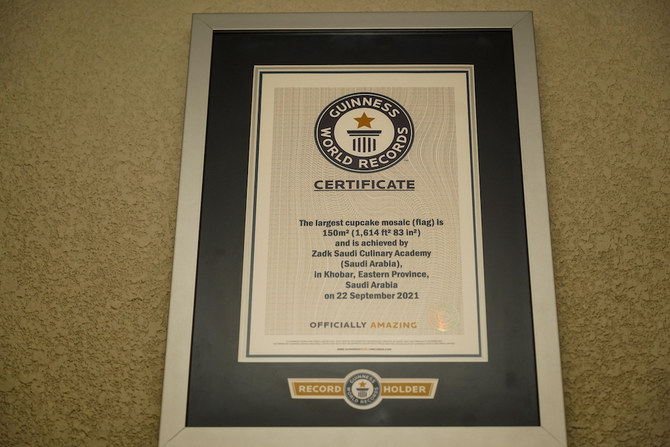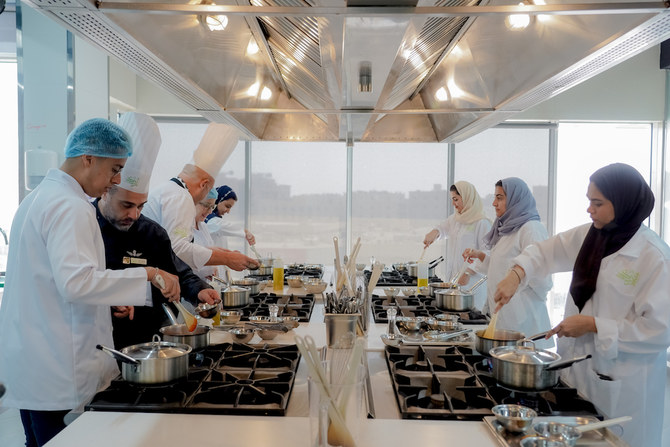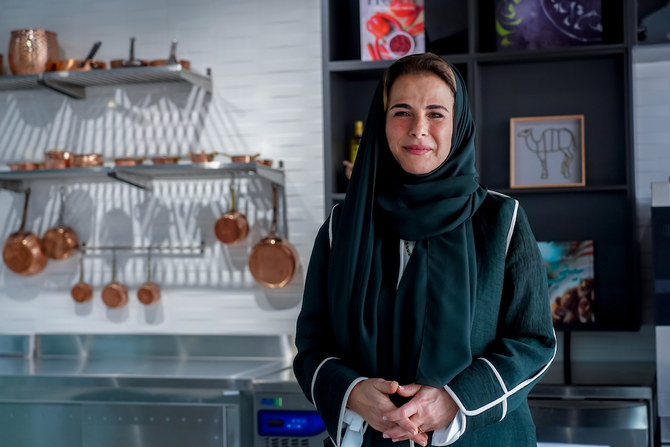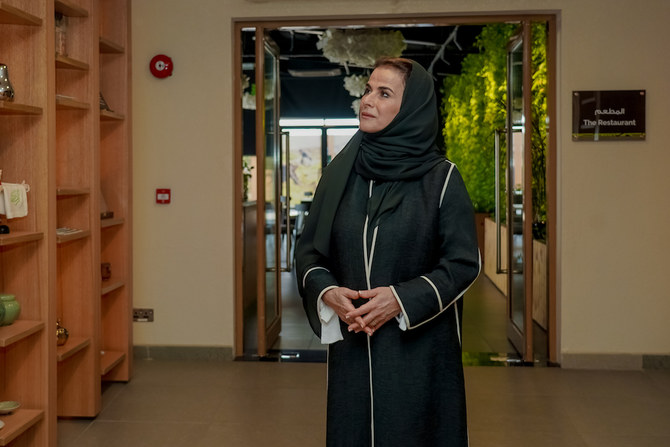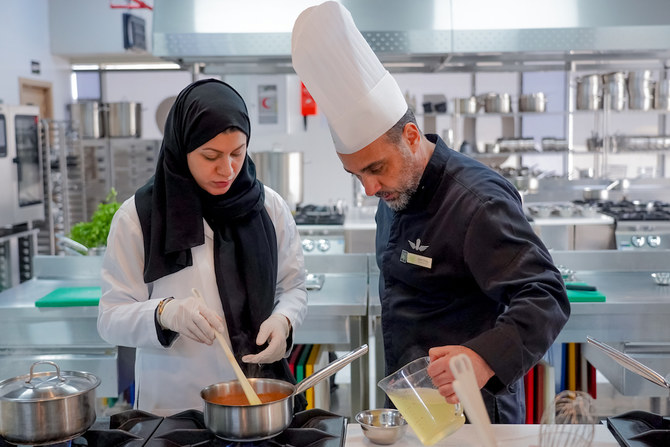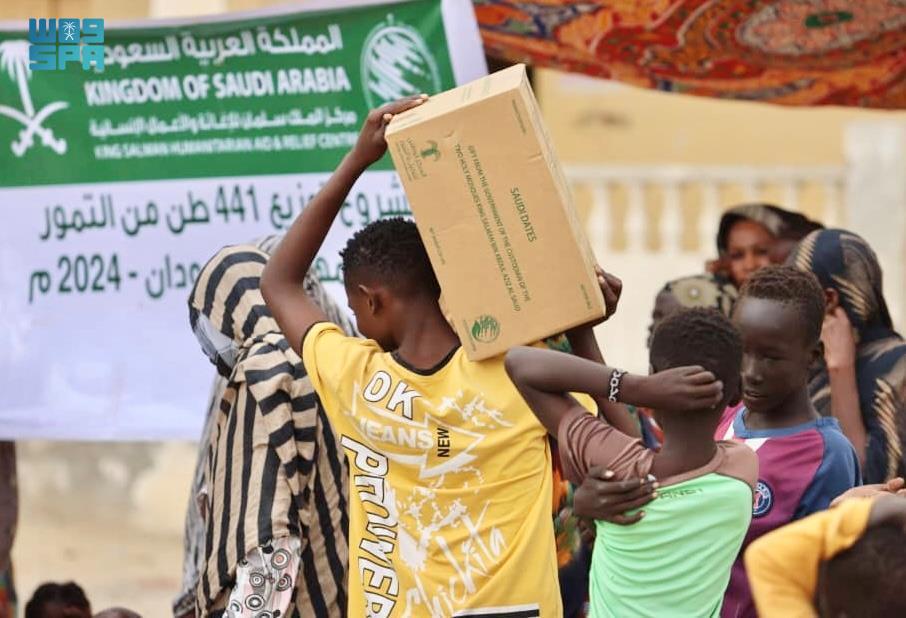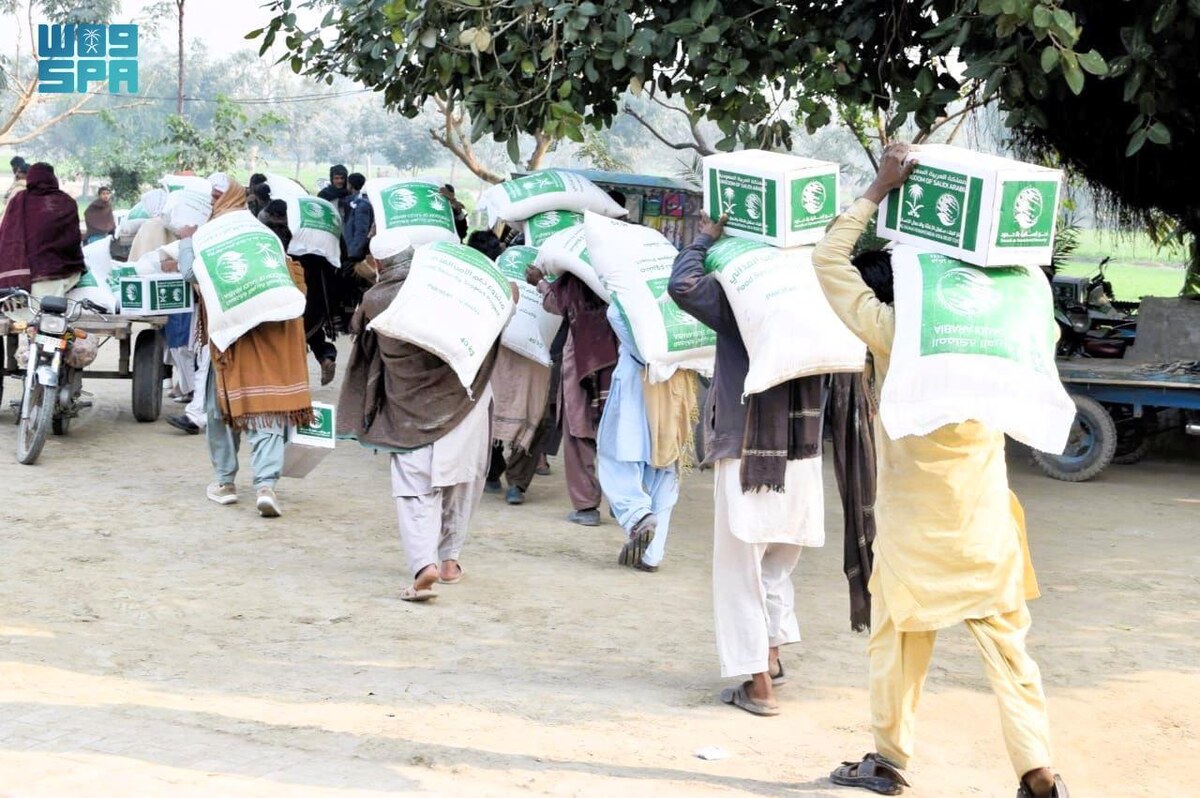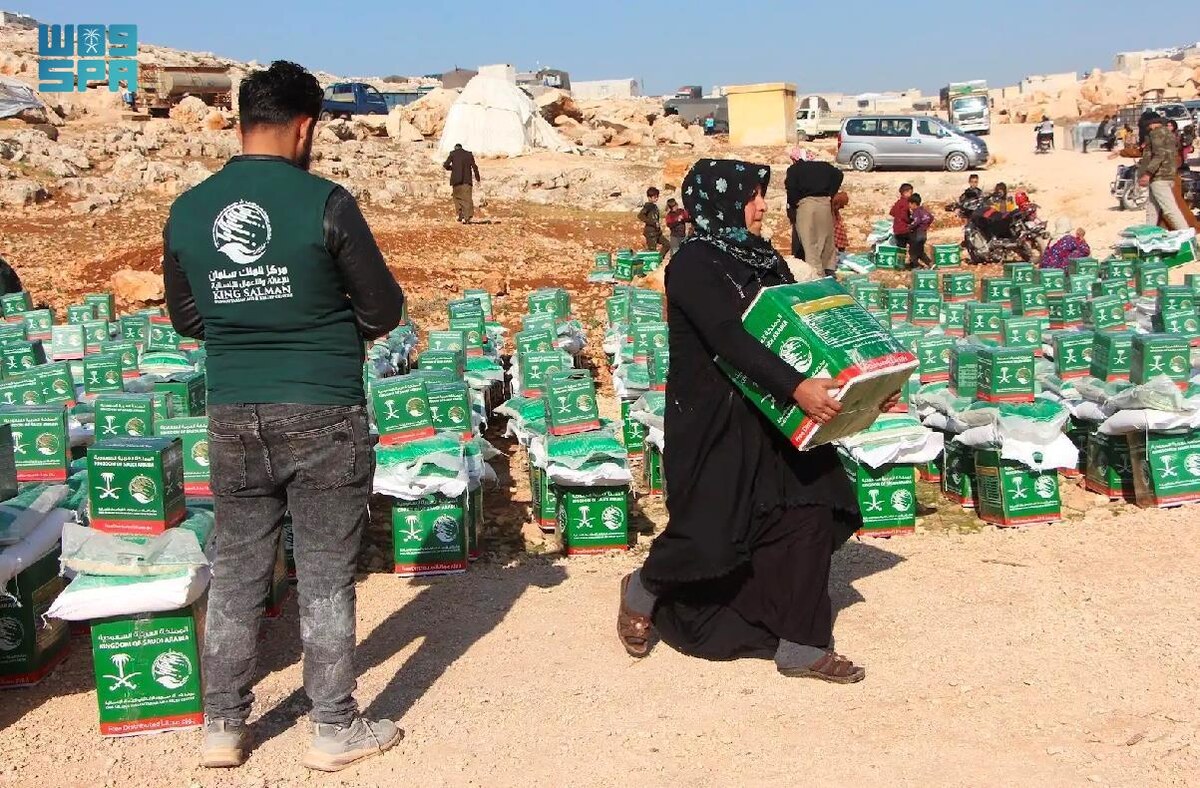ALKHOBAR: Rania Moualla always has a lot on her plate but fortunately she likes to share. When guests enter her office, she warmly greets them with a hot cup of coffee and a selection of tempting homemade snacks.
Moualla likes to ensure that everyone is fed and watered before any conversation or activities take place. With her nurturing nature, a passion for philanthropy and a keen eye for business, not only does the mother-of-three manage to flawlessly juggle multiple tasks at once, she also checks and stirs all the pots regularly, adding her own special ingredients into everything she does.
Fueled by an insatiable appetite for learning and a keen interest in feeding minds as well as stomachs, Moualla founded ZADK, the Saudi Culinary Academy, in Alkhobar in 2019.
Prince Saud bin Nayef is its honorary president and the members of its board include prominent food-industry figures with a connection to the city in some way, either because they or their loved ones live or lived there.
The first non-profit culinary academy to offer a Saudi-centric curriculum, ZADK — the name of which is derived from the Arabic word “zad,” which alludes to Arab generosity — combines a revolutionary concept with a humble mission. And in just three years it has established itself as an important part of the culinary sector in the Middle East and North Africa.
It has formed a partnership, for example, with the Culinary Art Academy of Switzerland, considered one of the top schools of its kind in the world, for one of its courses. In addition to this Saudi-Swiss Culinary Arts Diploma, ZADK also offers a Saudi Culinary Arts Diploma and a Program of the Culinary Arts with specialties in Saudi cuisine, European cuisine or patisserie.
The first batch of 18 ZADK students graduated this year. As part of their studies they curated a collection of recipes, in English and Arabic, for a graduation cookbook.
“Our best memories always are about the food,” Moualla told Arab News. “When we’re sharing a meal with somebody we love, actually it’s building memories and we are what we are now because of those memories.”
She said that it was important to her that the academy be located in Alkhobar, a city she arrived in as an 18-year-old bride 40 years ago, and where she raised her children. It is also a place she believes has great potential in the culinary sector.
“I see the Eastern Province developing as a hub with a lot of restaurants started by our students, with fine dining Saudi cuisine — and not just in the Eastern Province; all around the Kingdom,” she added.
Moualla said that about half of the academy’s students come from the Eastern Province. But regardless of their points of origin, all of them are required to dig into their family pantries and select a dish they feel best represents them.
They then work with trained chefs to refine their cooking methods, using professional techniques and tools, but care is taken to ensure they do not lose the unique character and history of their family dishes, or the memories they evoke in the students. Moualla said she wants the students to think of every plate as telling a story.
“The graduation project for our future chefs is doing a cookbook that reflects their culture,” she said.
“Each of the students will go to their mother, grandmother — anybody in the family — and look for a very authentic recipe, cook it with this person and bring it to the academy.
“Each of these students has contributed a recipe and we produced a book and this book will contain the recipe for generations to come. What we like to do is document our cuisine in a very organic way and make them proud of their work.”
Moualla ultimately aims to have bookshelves filled with hundreds of recipes that every single student who attended the academy played an active part in curating. It is a real labor of love.
She appears as a motherly figure as she walks around the kitchen at ZADK, taking note of every detail. She asks about an order for butter and pays attention to the way in which every hand reaches for each pot.
When she enters the room, the trainee chefs continue with what they are doing but they also watch her out the corners of their eyes. She never disrupts their work or disturbs them as they go about it; she merely glances, nods and moves on.
All around the place she has added her own little touches. Spaces are decorated with trinkets that remind you of a beautiful, happy home.
Moualla said it was important for her to go on this journey with the support of her friends, whom she calls family. Through simple recipes that use local ingredients, she strives to make delicious and nutritious meals that put an innovative spin on dishes with Middle Eastern roots.
She is also breaking records along the way — literally. In 2021, the academy earned a Guinness World Record for the largest cupcake mosaic, which measured 150 square meters and recreated the design of the Saudi national flag. The framed certificate for the achievement is proudly displayed at ZADK headquarters.
“As Saudis, as Arabs, we always associate good times around food and that’s where the idea came from” for the academy, said Moualla. “We want our students to give that good time to their families and then to their customers in the future when they start their careers.”
Always the gracious host, insisted on giving the last word to someone else, head chef Tareq Abunameh.
“I joined ZADK a year ago because I believe in its mission and vision,” he said. “Good education starts with passion and here at ZADK we have the best students in the world.”


